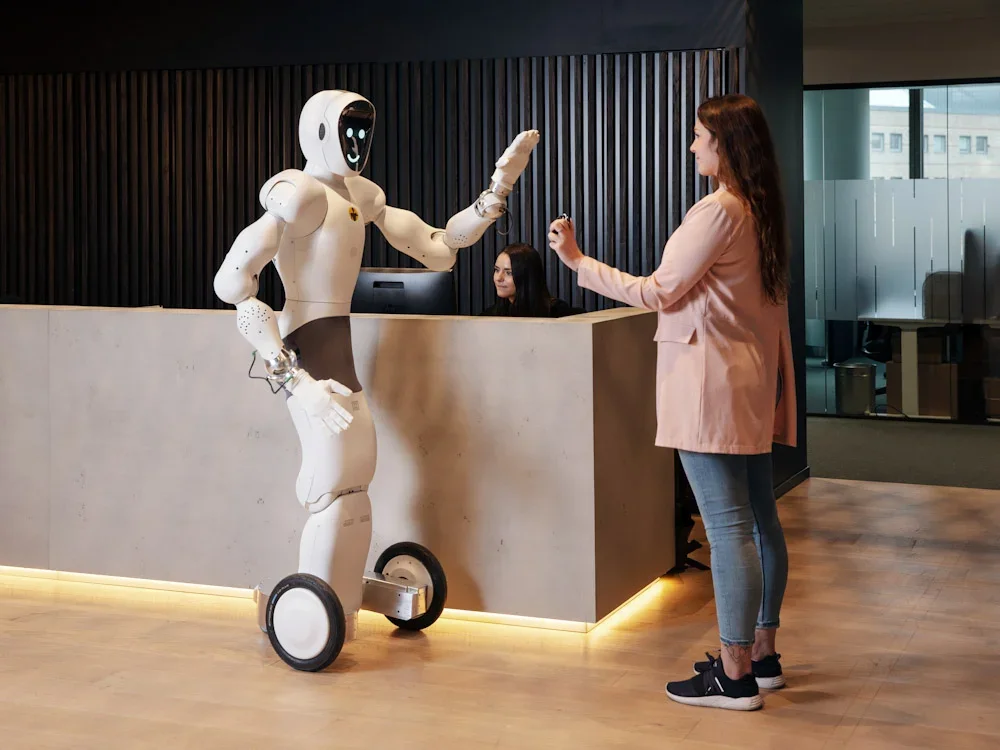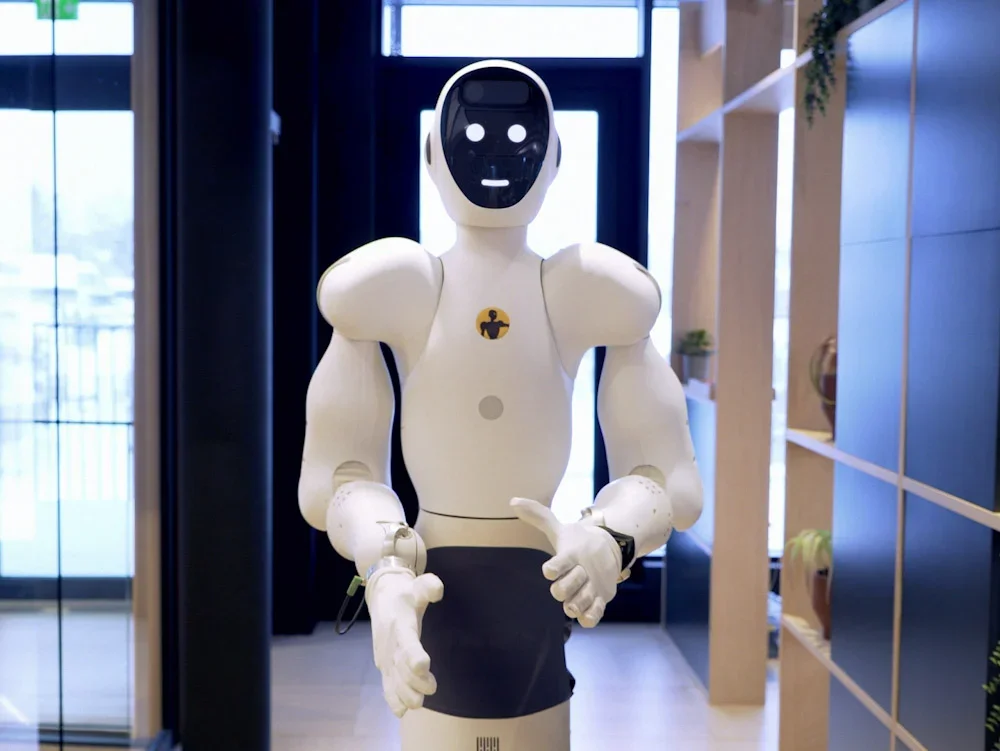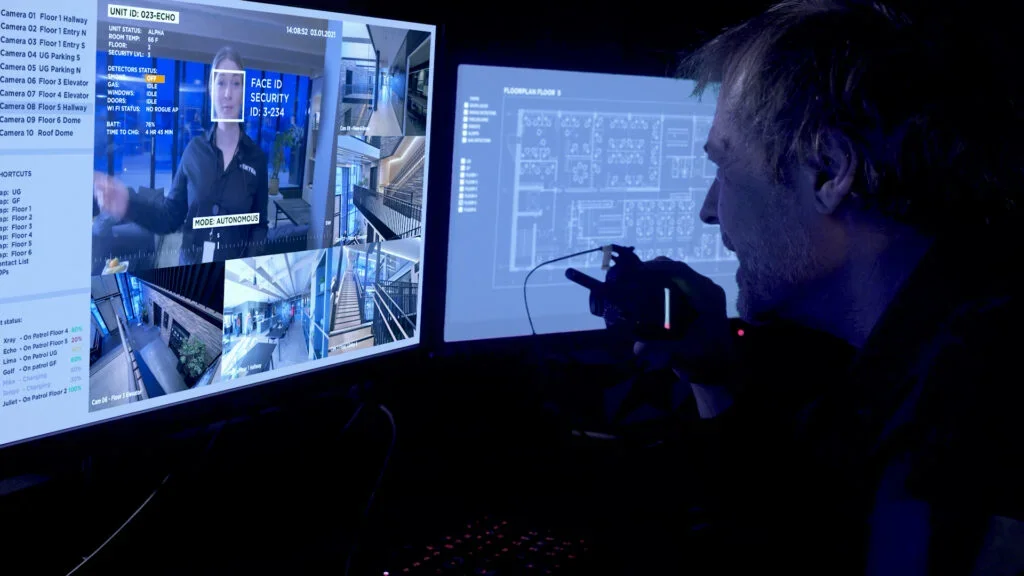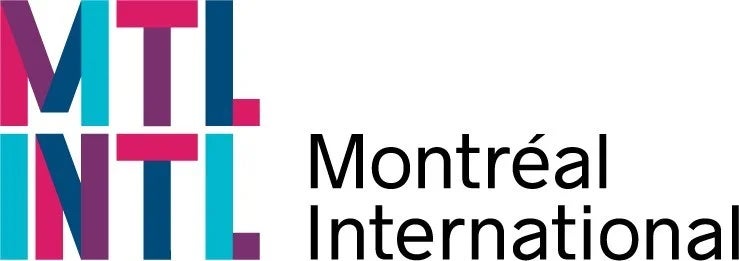
With a global shortage of workers, many industries are looking to robots for the answer. With its growing status as an international hub in AI, and connections with businesses and universities, Montreal is well-positioned to be a world-leading centre for robotics.

“One of our fundamental requirements with companies, especially in our shareholder agreement, is ethical use and safety,” emphasises Nadeau. “Every robot is equipped with an emergency stop that cuts power. So, it is just going to fall over if you need it to.”
The next step in development is to have Halodi’s robots carry out health and safety checks in buildings, such as making sure that fire extinguishers are in working order or if any light bulbs need replacing.
In the longer term, Halodi intends to build helper robots in healthcare environments to assist nurses and porters, with pilot studies currently taking place in care homes in Belgium and Norway.
Opportunities for robotics developers
Mark Maclean is well versed in Montréal’s AI ecosystem. He is a senior director covering the Americas and Asia-Pacific for Montréal International. For the past six years, he has been working with hundreds of international companies – most of them in the IT sector – setting up in the city.
Now, he sees the city’s AI and IT ecosystems sparking the interest of local and international companies looking for highly skilled talent to develop their robotics projects. “A lot of companies are starting to look at Montreal, and we feel there is a big opportunity here,” says Maclean.
“Montreal is a significant location for some of the important AI sub-sectors for robotics. Deep learning, reinforcement learning and computer vision — Montreal has really strong capabilities in those – and Montreal has always been an aeronautics hub. Our robots aren’t necessarily actually humanoid things walking around. They could be a million different things such as drones.”
Robotics is closely aligned with AI, and Montreal has more than 27,000 workers with skills in this area. Additionally, the future workforce will come from some of the 14,000 students taking AI-based courses at world-class institutions such as McGill University, which has the Centre for Intelligent Machines.

Montreal also has several universities within a relatively small area to help foster collaboration between industry and academia. Universities provide a safe environment to experiment with technologies.
“When I do a lot of research collaborations, I get to leverage the expertise of research labs for some of that higher risk, higher reward research that might fail but isn’t necessarily business-critical for my next short-term goals,” adds Nadeau.
In addition, there are more than 900 researchers and graduate students at Mila, which is the world’s largest specialist academic research centre dedicated to deep and reinforcement learning.
Another key factor driving robotics and AI innovation in Montreal is the city’s booming gaming industry. Technologies developed for video games such as augmented reality and virtual reality expand the possibilities for robotics.
Ultimately, Montreal’s strengths in AI and gaming are built on the foundations of an established IT ecosystem, with approximately 160,000 workers from more than 7,000 businesses. Global tech leaders with offices in Montreal include Google, Meta and Microsoft.
For businesses carrying out research and development, Montreal offers a range of generous tax credits. Then there is the time zone, with Montreal positioned ideally for collaboration with both Europe and the US West Coast.
Mark Maclean will highlight the city’s robotics assets at the forthcoming International Conference on Robotics and Automation (ICRA) 2022, which showcases what the city can offer investors and innovators. The event runs from 23–27 May at Pennsylvania Convention Center, Philadelphia, US. Halodi Robotics will also have a presence at ICRA for recruitment and research collaboration opportunities.
To learn more about what Montreal can offer robotics companies, download the document below.


